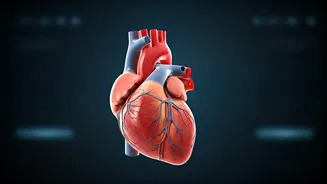Food For Hearts
Nourishing your heart through your diet plays a significant role in maintaining optimal health. Several food items stand out as particularly beneficial.
Incorporate heart-healthy foods like walnuts, as recommended by Harvard doctors; consider including them in your daily routine to potentially lower the risk of cardiovascular problems. Fiber-rich foods also contribute positively to gut health, which in turn benefits the heart. Eating meals that include fiber is recommended. Moreover, understanding how foods impact cholesterol levels is crucial; exploring options to lower cholesterol is a key aspect of heart health. Including the right foods helps not only prevent heart disease but also supports overall well-being. Proper nutrition is undeniably important for your heart health.
Heart Failure Defined
Heart failure is a serious condition requiring careful attention. In heart failure, the heart cannot pump enough blood to meet the body's needs. This condition can stem from various underlying issues like coronary artery disease, high blood pressure, or damaged heart valves. Recognizing the early symptoms is crucial. They can include shortness of breath, fatigue, and swelling in the legs or ankles. If you experience these symptoms, consulting a healthcare professional is crucial for appropriate diagnosis and management. Timely intervention can significantly improve the quality of life and outcomes for individuals affected by heart failure. Understanding the causes and symptoms paves the way for effective prevention and treatment.
Lowering Cholesterol
Managing cholesterol levels is a key strategy in protecting heart health. Elevated cholesterol, particularly LDL cholesterol, is a major risk factor for heart disease. Several methods are available to manage cholesterol. Lifestyle adjustments, like dietary changes, play a vital role. Focus on a diet low in saturated and trans fats and rich in fiber. Regular physical activity is another critical aspect, helping to reduce LDL cholesterol and raise HDL cholesterol. In some cases, medication might be necessary, and medical professionals can guide this. Regularly monitoring cholesterol levels through blood tests is essential to track progress. By adopting these strategies, individuals can effectively work to lower their cholesterol and improve cardiovascular health, thereby reducing their risk of heart disease.
Kidney Health Link
A lesser-known but crucial relationship exists between heart health and kidney health. The kidneys play an essential role in filtering waste and regulating blood pressure, which, if impaired, can stress the heart. Conditions such as kidney attacks can arise from various factors, and their symptoms should not be ignored. Symptoms can include back pain, nausea, and changes in urination. Protecting kidney health involves lifestyle modifications and, in some cases, medical interventions. Staying hydrated, maintaining a balanced diet, and avoiding excessive sodium intake are beneficial strategies. Regular check-ups and early detection are key to preventing the progression of kidney-related problems. Addressing kidney issues early on can indirectly support heart health, demonstrating the interconnectedness of these vital organs.












